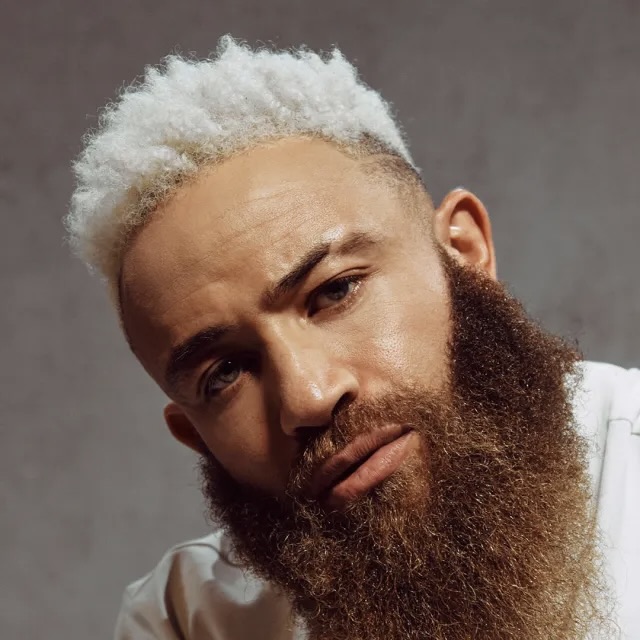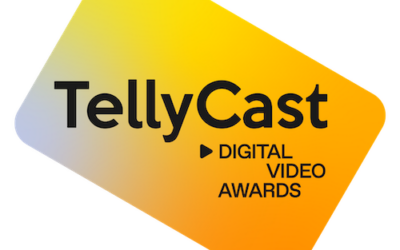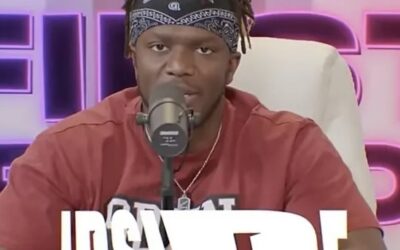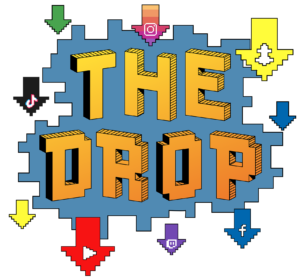Over the course of the last six months, one central theme has kept coming up in The Drop’s stories – how can digital first content producers turn their creativity into cash? The answer, it seems, is multiple revenue streams, with platform ad revenue share, branded content partnership, real world product launches, live events and subscription (including ad hoc fan gifts) among the most promising opportunities.
Another area that is gaining traction is the creation of ‘digital formats’ – which has become a regular topic of discussion whenever digital first creators gather together at industry conferences and networking events. While it’s early days in terms of digital format revenue generation, a growing number of digital first studios and creators have recognised that the scale of their audiences gives them a unique opportunity to build durable franchises. Rather than relying solely on their own personal connection with audiences, they see a chance to build IP with long-term money-making potential.
In simple terms, this digital formats opportunity comes in three parts:
Firstly, and most obviously, the creation of digital formats makes it possible to build a destination that young audiences keeping coming back to. In the world of TV, this sounds like a statement of the bleeding obvious, but in social media where audiences are exposed to an incessant outpouring of stories and ideas from millions of sources there is real value in having a recognisable brand that audiences can coalesce around. As soon as audiences recognise that a particular format is the best platform for human interest stories or exotic recipes or DIY it creates community that can be monetised. In the same way that TV has room for both Masterchef and Gordon Ramsay, digital first platforms require a mixed economy of IP-led and talent-led content.
Secondly, the creation of formats opens up the possibility of migrating ideas to TV and then adapting them for multiple markets. There is still some cultural resistance to this idea from both the digital and TV sides, but there’s no meaningful reason why a great idea born in digital can’t become a robust TV format like Traitors, Survivor or Married At First Sight. Critics might argue that there are not enough format beats in digital entertainment shows to make a TV show – but that objection hasn’t stopped producers turning to short sequences in Japanese gameshows or board games for format ideas.
Thirdly, the creation of formats means it is possible to reinvent IP for digital platforms in other markets. Given that the internet is a global medium, there’s an irony in the fact that a lot of great content remains trapped within a specific geographic zone. Once again, there is no reason why a format idea that is delighting YouTube audiences in Italy can’t be converted for UK, Indian or Latin American audiences.
As we noted at the outset, digital formats is still a relatively new sector for social first creators. But here are a few examples of how the market is evolving:
Adventure
7 vs Wild: This week, The Drop reported that Quintus Studios has acquired the international format distribution rights to 7 vs. Wild, a hit reality format that first came to prominence via YouTube in Germany. Developed by German YouTube producers Fritz Meinecke, Johannes Hovekamp and Max Kovacs, the show sends seven content creators and influencers into the wilderness with just seven basic survival items – such as a machete, sleeping bag or fire steel. Challenged to survive seven days in the wilderness, the contestants who overcome the odds win a donation to the charity of their choice. Hugely popular in Germany, Quintus sees an opportunity to build local versions of the show for digital first audiences in other markets.
Chat Show
Royal Court: Another of this week’s stories saw social media star Brittany Broksi launch a digital-first celebrity talk show format called Royal Court. Although the show sits firmly in the popular culture camp, Broksi has given the format design a Game Of Thrones-style twist. In each episode, featured guests go through a series of challenges in a bid to win a place on Broski’s ‘medieval council.’ The chat-based genre is one of the more dynamic sectors of digital formats. Studio B, for example, has an interview-based format that leans into the company’s expertise in VFX. Called This Interview Wil Self Destruct, guests have included Hollywood stars Tom Holland and Jake Gyllenhaal. LADbible Group (LBG), meanwhile, has Get A Job, a straight-to-camera format that features celebrity-focused interviews. The show puts stars to work with a series of questions and challenges related to their lives and careers.
Crafts
5-Minute Crafts: Created in 2016 by TheSoul Publishing, 5-Minute Crafts showcases creative hacks and crafts, demonstrating a variety of fun solutions to everyday problems. The brand has now gone well beyond being a show format – spawning a series of YouTube Channels (with content also being distributed via FAST). Across all its manifestations, 5-Minute Crafts now reaches 300m+ YouTube subscribers as well as 20 million+ on TikTok. The reason it makes sense to include this brand in a piece about formats is that it demonstrates how content ideas can burgeon into communities.
Current Affairs
Untold: A spin-off from Channel 4’s long-running Dispatches strand, digital first series Untold dives into unique and hidden true stories, and features diverse and authentic voices from across the UK. Highlights of the first season included Gay Under the Taliban, Life After Love Island, and The Secret World of Incels. With around two million views for the first series, Untold has demonstrated that there is scope for a current affairs content aimed at young audiences. Giving its background as a broadcaster, perhaps it’s no surprise that Channel 4 has attempted to bring a format feel to its digital first content. Other Channel 4 digital formats include Secret Sauce, which saw host Chunkz competing against celebrity guests to recreate family recipes.
Dating
20 vs 1: It’s no surprise dating should be a strong content segment in digital media. Earlier this year, Arcade Media updated on the growing momentum behind 20 vs 1 from YouTube content creators The Sidemen. Speaking via LinkedIn Arcade Media’s Victor Bengtsson said 20 Women vs 1 Sidemen: Kai Cenat Edition generated “millions of views within hours”. Dissecting the episode’s robust performance, Bengtsson said it was partly down to the strength of the format: “20 vs 1 is our top-performing content strand currently and this was the eighth in the series. It was always going to bang — the question was not whether it would pop off, just how much.”
Education
Glow Up Your Grades: 2023 saw Future Studios launch education-meets-entertainment series Glow Up Your Grades. Hosted by teacher, author and presenter Mehreen Baig, Glow Up Your Grades (48 x 20 minutes) is described as “a multi-platform education-meets-entertainment series bringing students the ultimate revision programme.” Each episode is a planned lesson where Baig takes students through all the skills they need to pass their English GCSE. Full lessons are published on YouTube with shorter versions across other social platforms. Future’s ambition is to build the format into a multi-platform, multi-disciplinary educational resource.
Mental Health
Faces: Paramount-owned MTV has a digital series called MTV Faces which explores themes of grief through the eyes of celebrity guests. The series cuts straight to the core of grief presentation, creating a holding space for raw conversations, between peers who are on a level with each other’s experiences. The series is hosted by Ashley Cain, who has also experienced personal loss. Also in the mental health space is Snap series I Want To Get Better with Jameela Jamil. Over the course of the series, actor, presenter and broadcaster Jamil meets people tackling mental health challenges and shares her own wellness journey. She also explores activities to inspire people.
Personal Empowerment
Jungle Creations has created content across a range of sectors (most notably food). Among its recent formats is one that focuses on female empowerment. Called Engaged, the series starts with the premise that the women’s toilet “isn’t just a place for a wee and topping up your mascara”. Building on this insight, it uses the female restroom “as a precinct for women to share”. In each episode, two women with unique stories and challenges sit in adjacent toilet cubicles. They then tell each other their story. Each episode is themed and covers topics like Dating, Grief and Body Image.
Prank-based comedy
Tapped Out: Channel 4.0 recently unveiled all-female line-up prank show, Tapped Out. A six-part series commissioned by Evie Buckley and produced by Wall of Productions, Tapped Out sees Nella Rose and friends turn practical jokers as they see who can last the longest in a range of hilarious and cringe-worthy situations, aiming to execute the wildest pranks possible. LBG is also active in this segment, with Don’t Hang Up, which LBG calls “the first-ever prank call competition show”. In each episode, three comics compete to see who can complete the most pranks.
Relationships
Blue Therapy: Earlier in 2023, The Drop reported that TV distributor All3Media International and producer Luti Media are taking couples therapy series Blue Therapy to the global market. Based on the Blue Therapy YouTube series which launched in 2021, a TV version of Blue Therapy (w/t) has already been commissioned for a full series by UK youth-oriented channel E4. A3MI will handle tape sales and format rights for the series internationally. The original YouTube series began as a six-part reality show and averaged two million views per episode. Set in a country house, it explores the complex relationships of five diverse and aspirational couples. Each couple meets with relationship coaches to face up to the conflicts in their partnerships.
Social Experiment/Reality
It’s Mutual: Social experiment formats have been one of the TV industry’s big success stories over the last couple of decades – with Dutch juggernaut Big Brother triggering an endlessly creative array of hit shows. However this genre also resonates well with digital media – which is rich with social experiment-style content. One company that has put its toe in the water is Future Studios, the video production division of Future Publishing. Recently, it was commissioned by Channel 4.0 to make It’s Mutual, a seven part, social experiment-style gameshow series. Each episode sees a player nominate a group of people all linked to them for the same reason – for example everyone they’ve slept with, or everyone they’ve ghosted. This group then works together over a series of clues to deduce who has brought them together.






